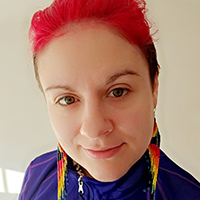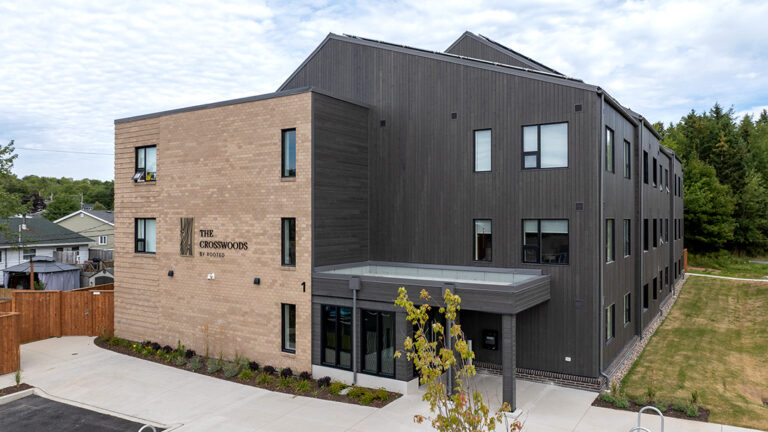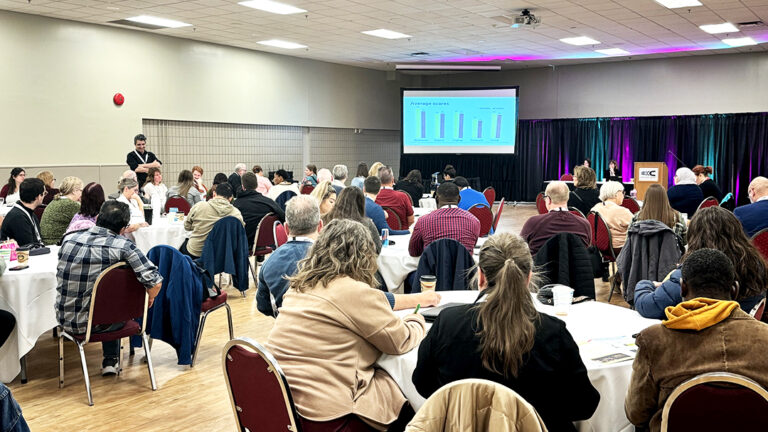Our commitment to creating meaningful opportunities for Indigenous talent is at the heart of our vision for a more equitable and empowered future. The Indigenous Internship Program is designed to nurture interns’ capabilities, enabling them to acquire essential leadership skills, as well as the knowledge and experience needed to thrive professionally in the community housing sector.
“As we enter our second year, we have refined and adapted the program based on research into other successful internship programs, and feedback from our inaugural cohort to ensure a more defined and focused experience for our new interns,” says Stefanie Einfeld, the Centre’s Indigenous Intern Program Coach.
The new cohort will have the opportunity to learn about the sector, property management, governance, and sustainable housing development. They will learn about program management by familiarizing themselves with the Centre’s grants and will have the opportunity to be mentored by the Centre’s program managers and development officers. They will also take part in the activities of the communications team to familiarize themselves with communications tools. They will also travel to conferences and network.
Christina Gervais, a graduate of the internship program testified that “the mentors and colleagues have been a source of motivation and encouragement. I’m now firmly committed to contributing to Indigenous communities and the broader community housing sector, convinced that collaboration has the power to bring about meaningful change.”
A new cohort for the new pathway
This year, the Centre took on four interns: Alexis Olsen, Connor Reid, Chantel Caza and Michelle Matkowski, bringing a wealth of experience and interests to the program.

Alexis, originally from Okotoks, Alberta, brings an entrepreneurial spirit and her own knowledge of the housing crisis. She has already gained professional experience in her community as a youth and family support worker. Alexis wants to contribute to the betterment of Indigenous societies and learn more about housing issues.

Connor, based in St. Catharines, Ontario, is an advocate for well-being and education in Indigenous communities. He has previously worked to support Indigenous youth in various fields, such as education, employment, and well-being. He would like to help address the multi-faceted challenges of Indigenous housing.

Michelle, a Métis from the Red River, lives in Winnipeg. After working with the Main Street Project, the Manitoba Métis Federation, and the Louis Riel Institute, she realized that housing options were deplorable for some of her community members. She is motivated by the idea of making a difference in the Indigenous housing sector.

Chantel, an Inuk woman living in Iqaluit, Nunavut, shows a strong commitment to solving the housing crisis in northern communities. She has already gained experience in the housing sector through her work with the Nunavut Housing Corporation, which is sponsoring her internship.
Strengthening talent: a sector-wide commitment and responsibility
The Indigenous Internship Program would not be complete without the participation of our partners. In its first year, the program has benefited from a range of activities within participating organizations, which in turn, represent a diverse range of expertise and missions in the Indigenous community housing sector.
Professional experience in specialized fields, such as property management, was provided by our partners Housing Services Corporation (HSC), Namerind Housing, and Manitoba non-profit housing association (MNPHA).
Active participation in community engagement sessions was made possible through the Centre’s partnership with the Rural Development Network (RDN). As part of this project, our intern helped develop data collection tools in Newfoundland with the Qalipu First Nation.
Several networking and learning opportunities were provided through financial sponsorship or training with the Canadian Housing and Renewal Association (CHRA), Aboriginal Housing Management Association (AHMA), and M’akola Housing Society.
After sharing the story of life on the reserve, Christina Gervais published an article with AHMA’s communications team, titled “If Our Voices Were Heard“. It highlights the particularly severe impact of the housing crisis on Indigenous populations, underlining the need for concrete efforts to achieve equity through the NICHI initiative. The examples highlighted in this article reinforce the idea that our program – by cultivating this deep understanding of the housing ecosystem – can make a significant impact in the Indigenous community housing sector.
The active engagement of all stakeholders in the community housing sector is necessary to produce the much-needed breakthroughs, which is why we invite you to sponsor interns.



